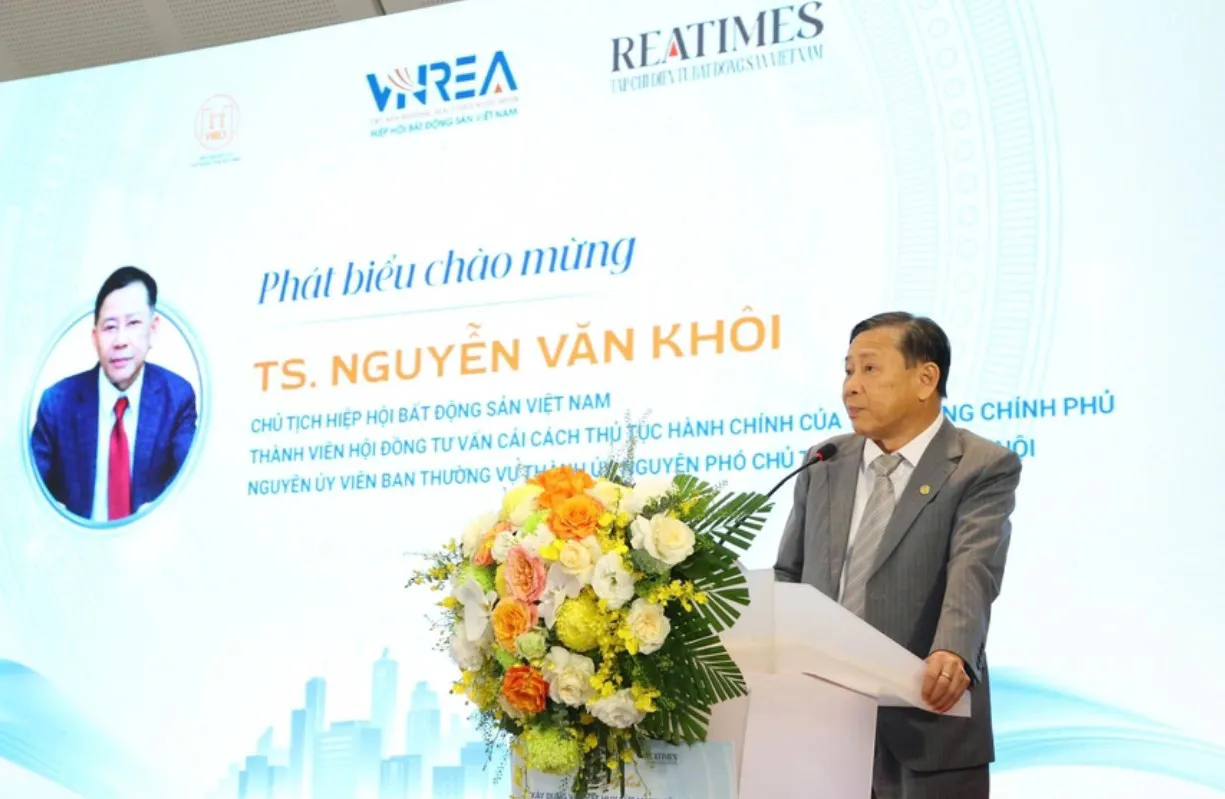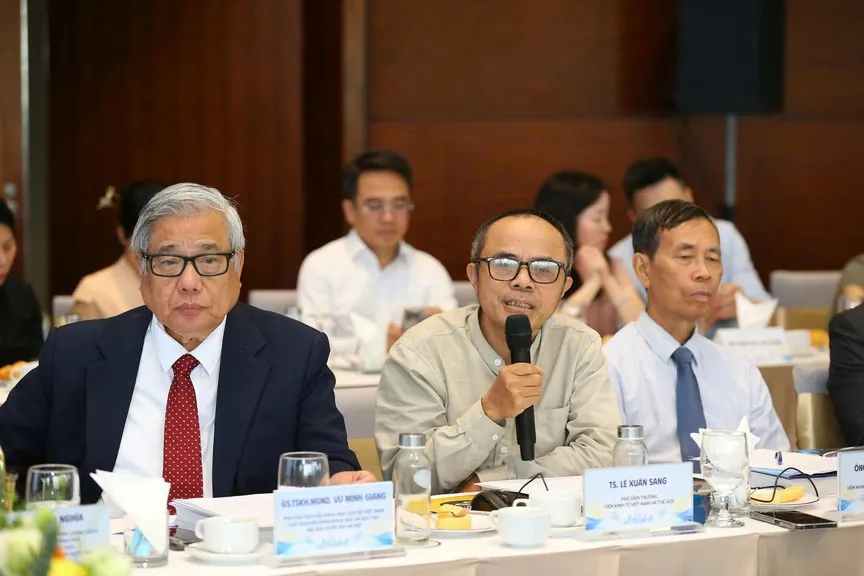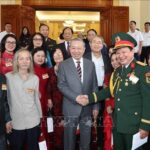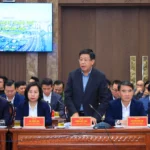The concept of “national enterprises” has been mentioned for over 20 years but still lacks a clear definition. Experts suggest that Vietnam needs to define national enterprises not only by ownership percentage or scale, but by cultural identity and technological capability, as these are the foundation for sustainable development.
Vietnamese Enterprises Must Master Technology
On October 8, under the direction of the Vietnam Real Estate Association, the Vietnam Real Estate Electronic Magazine (Reatimes) coordinated with the Vietnam Institute of Real Estate Research (VIRES) to organize the Workshop “Building and Promoting the Strength of National Enterprises for Vietnam’s Prosperity Ambition”. The event is an important pillar in the Communication Project on the historical mission of the private economy, and also an occasion to honor the Top 40 exemplary private enterprises after 40 years of renovation, representing the spirit of “Think Big – Do Real – Contribute Continuously”.
Overview of the workshop
After 40 years of renovation, the private economic sector has become a pillar of the economy, contributing nearly 50% of GDP, over 30% of total state budget revenue, and creating jobs for more than 80% of the national workforce. However, to realize the ambition of a strong Vietnam, many experts believe it’s time to clearly establish the concept of “national enterprises”, as these are important entities carrying Vietnamese identity, intelligence, and ambition.
In the opening speech, it was emphasized that after 40 years of renovation, the private economic sector has not only grown in scale but has also become a pioneering force in creativity, innovation, and integration. National strength comes not only from resources but primarily from people who know how to turn ambition into action. “Every brand, every project of Vietnamese enterprises is a brick contributing to building the prosperous house of the Fatherland,” it was stated.

At the Workshop, it was argued that to create a strong nation, there must be strong enterprises. Enterprises are the key factor determining the nation’s self-reliance and self-strengthening capacity. It was cited that in 2024, Vietnam’s exports reached about $400 billion, but the FDI sector accounted for 75%, while domestic enterprises only “exported on behalf of” foreign corporations, showing the economy’s continued dependence, low added value, and lack of core technology.
From this reality, three strategic directions were emphasized. Among them, Vietnamese enterprises must master technology and develop manufacturing industries using national internal strength; the economy needs to be based on the pillars of production and technology rather than just trade or real estate; simultaneously, real estate needs to shift from short-term investment channels to infrastructure platforms for sustainable industrialization and urbanization. It was suggested that the strength of national entrepreneurs and self-reliant nations must come from the goal of “building a peacock’s nest”, gathering talent, and creating Vietnam’s intellectual strength.
The Core of a Self-Reliant Economy
From a research perspective, it was noted that the concept of “national enterprises” has been mentioned for over 20 years, but to date, there is still no clear definition and set of criteria.
According to this view, in the context of a world full of “four uncertainties” – instability, uncertainty, insecurity, and unpredictability – strengthening national self-reliance capacity becomes increasingly urgent. From international experience, it was suggested that national enterprises are determined based on four criteria, including domestic ownership percentage; contribution to the economy; national cultural identity; and contemporary factors such as technology, environment, and green economy. From this, it was proposed that Vietnam needs to soon build a set of criteria comprising 9 elements, combining both quantitative and qualitative aspects to serve as a basis for policy planning and nurturing national entrepreneurs through appropriate financial, monetary, and credit tools.

From the perspective of foreign affairs and integration, it was argued that the ambition to develop a strong country lies not only at the national level but also spreads to each individual and each enterprise, who are directly creating value and innovating.
According to this view, the world is entering an era of digital transformation and green






